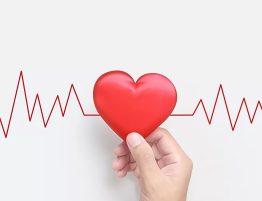
From 11 to 17 November 2023, Belarus will celebrate World Antimicrobial Resistance Awareness Week (formerly World Antimicrobial Stewardship Week).
This problem affects us all. It poses a threat to humans, animals, plants and the environment. That’s why the campaign’s slogan for 2023 is to call for cross-sector collaboration to preserve the effectiveness of these life-saving medicines: “Unite to fight antimicrobial resistance.”
Experts believe that solving this global problem will make it possible to effectively use antibiotics to treat infectious diseases throughout the world.
A little history
The issue of proper use of antimicrobials was first raised by the World Health Organization (WHO) in 2015. Since then, large-scale events have been held annually to raise awareness of the problem of antimicrobial resistance among people around the world, as well as the use of best practices to prevent its further development and spread.
Antibiotics. Consequences of their irrational use
Antibiotics (antimicrobial agents) are substances of synthetic or natural origin that destroy microorganisms (bactericidal effect) or suppress their ability to reproduce (bacteriostatic effect).
Currently, about 700 thousand people a year die due to antimicrobial resistance. According to experts, if the situation with the use of antibiotics does not change, then by 2050 antimicrobial resistance will cause 10 million deaths annually and will exceed mortality from cancer.
Antibiotic resistance is a consequence of their irrational use, that is:
- using them unnecessarily;
- for a very short period of time and in insufficient doses;
- using them for other purposes, that is, to treat a disease that this drug does not treat.
As resistance develops, the effectiveness of the drugs gradually decreases and is eventually lost completely. Microorganisms survive and even grow in the presence of antibiotic concentrations sufficient to kill or inhibit their growth under normal conditions.
In these cases, there is a need to select other antimicrobial drugs to which microbes remain sensitive, which lengthens the treatment process and can lead to complications, longer hospitalization, and increased medical costs.
Antibiotic resistance is one of the most serious threats to human health
- Antibiotic resistance can affect anyone, at any age, in any country.
- Increasingly, infectious diseases (for example, pneumonia, tuberculosis, salmonellosis) are becoming more difficult to treat due to the decrease in the effectiveness of antibiotics.
Recommendations for preventing the development of antibiotic resistance
Each of us can make a difference in the fight against antimicrobial resistance by following these expert guidelines:
- take antibiotics only as prescribed by your doctor;
- always follow the recommended dosage and duration of use of prescribed antimicrobial drugs;
- never give your antibiotics to others and do not finish the remaining drugs “because it’s a shame to throw them away”;
- to reduce the risk of disease, take preventive measures, including vaccination;
- prevent infection – wash your hands regularly, practice good hygiene when preparing food, use only high-quality food and water, avoid contact with sick people.
Instead of conclusion
New antibiotics are currently being developed. This work may take 10-15 years. But, according to experts, none of them will be effective against the most dangerous forms of bacteria with already developed resistance to modern antimicrobial drugs.
Determination of sensitivity to antimicrobial drugs
For the purpose of rational use of antibiotics, a laboratory method for determining sensitivity to antimicrobial drugs has been developed. Such a study can be done in the microbiological laboratory of the Brest Regional Center for Geology and Health at the address: st. Soviet border guards, 54 (contact numbers 53-64-52 and 53-66-95 from 8.00 to 17.00, lunch from 13.00 to 14.00).
Medical prevention doctor at the Brest Regional Center for Hygiene, Epidemiology and Public Health V.S. Mashenskaya.








